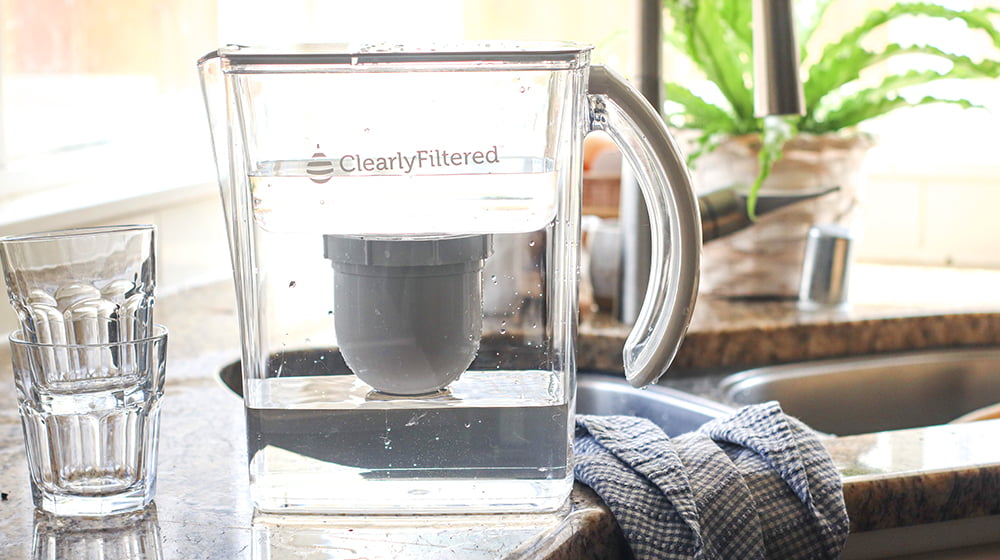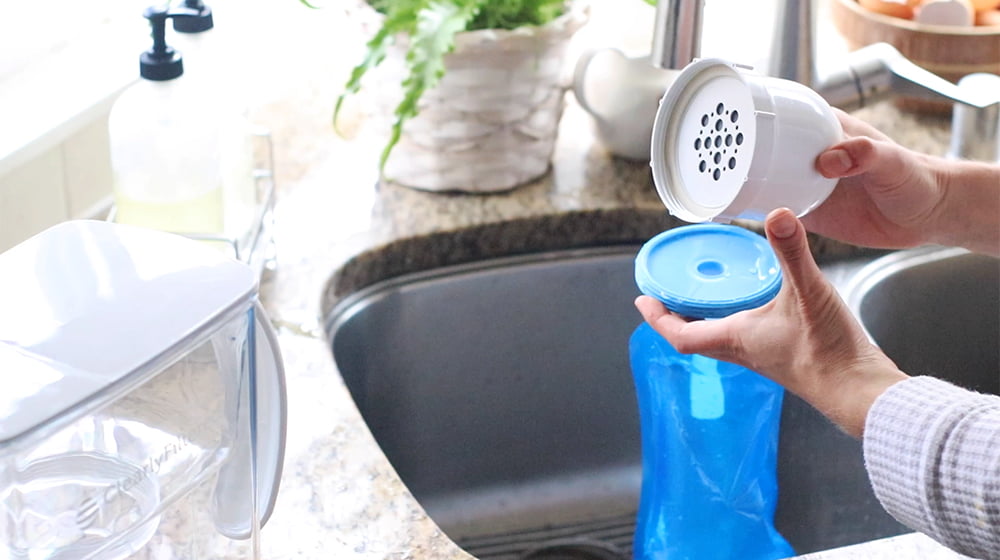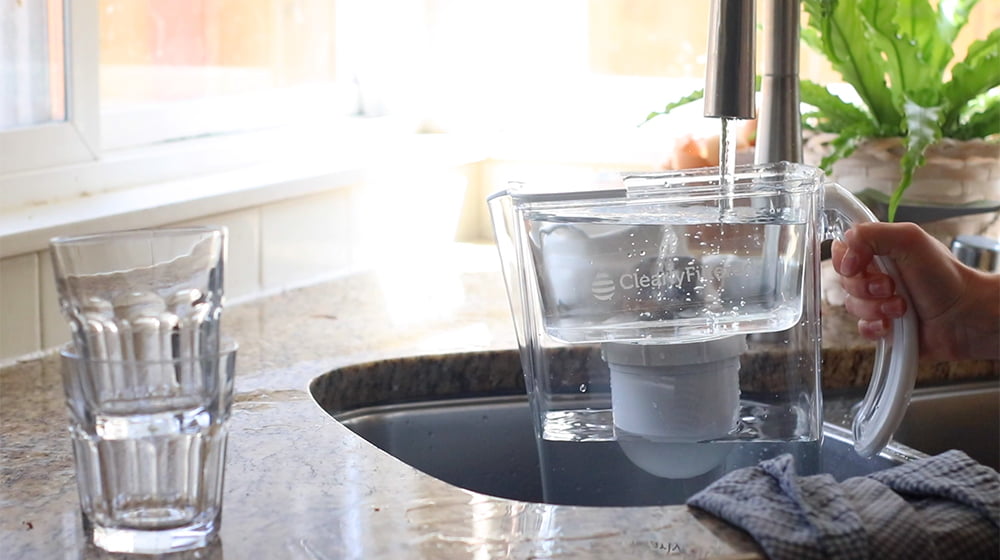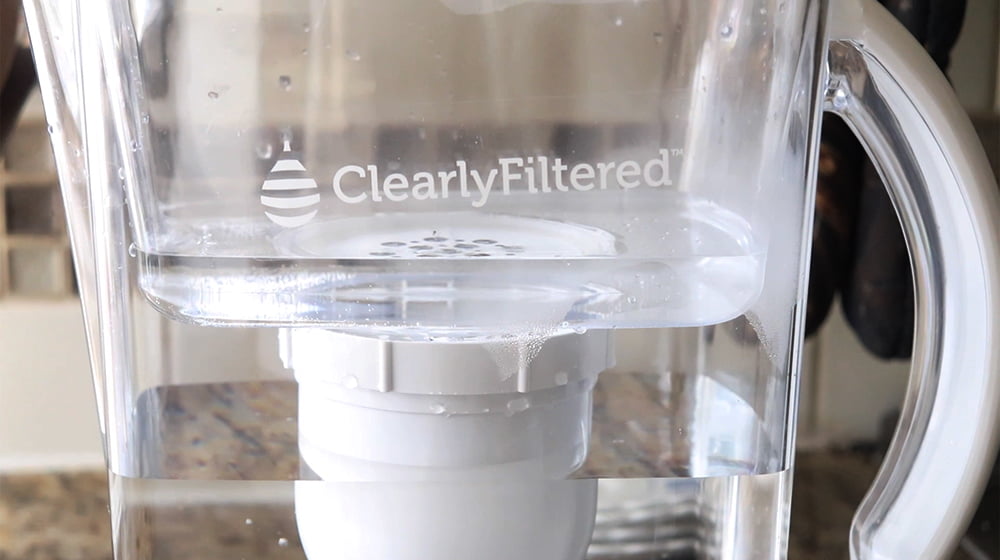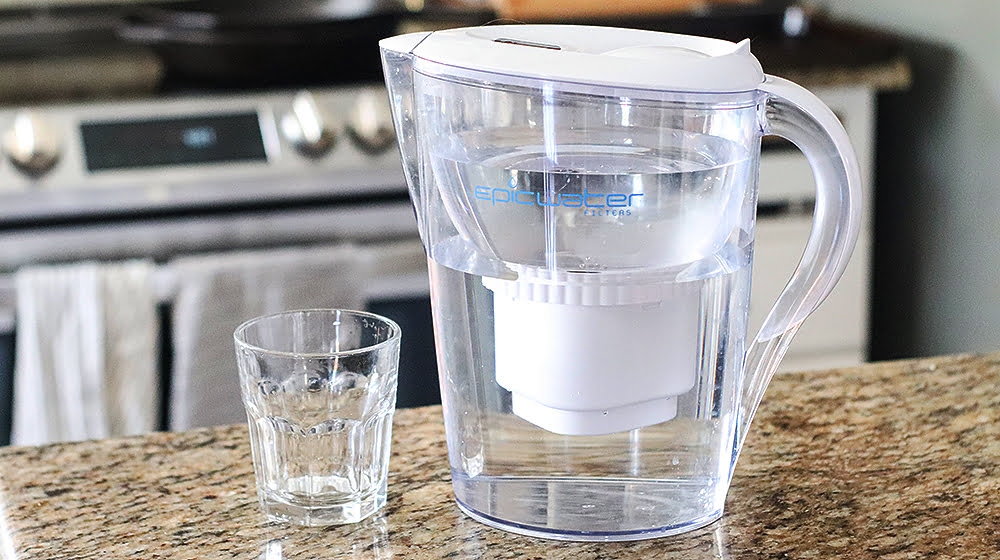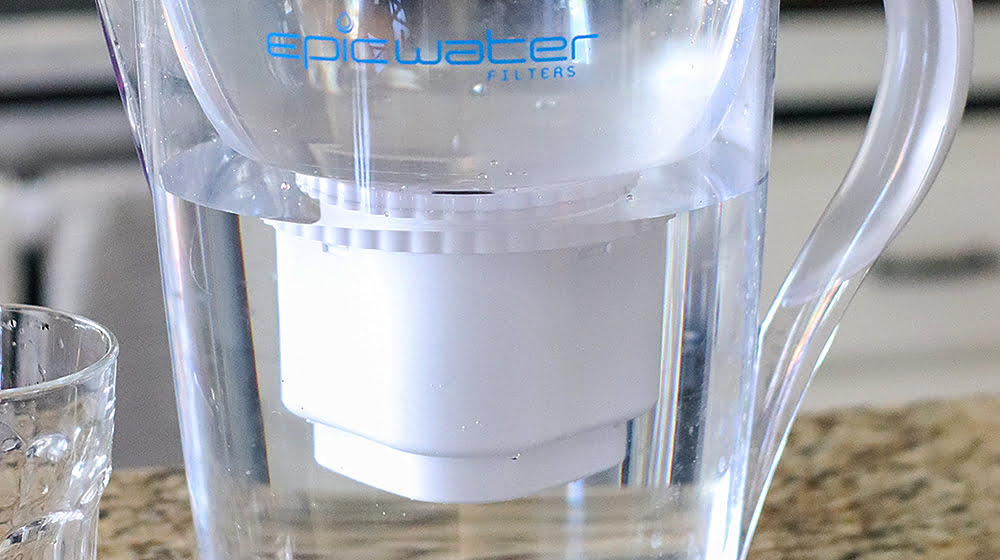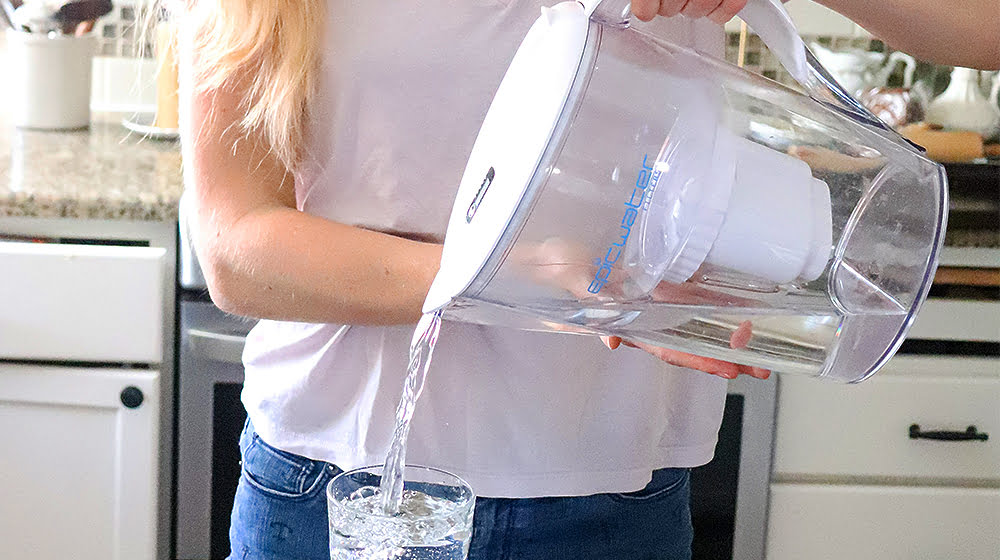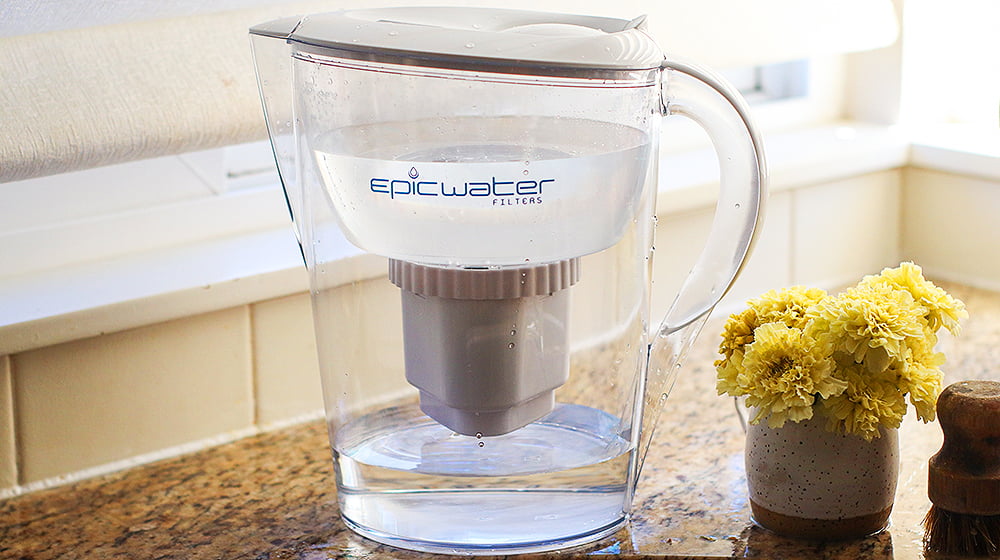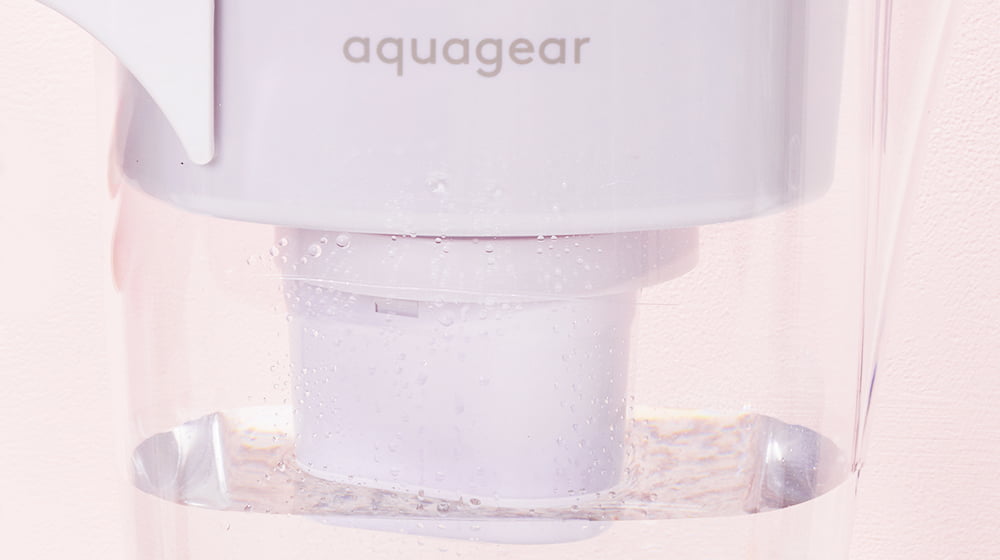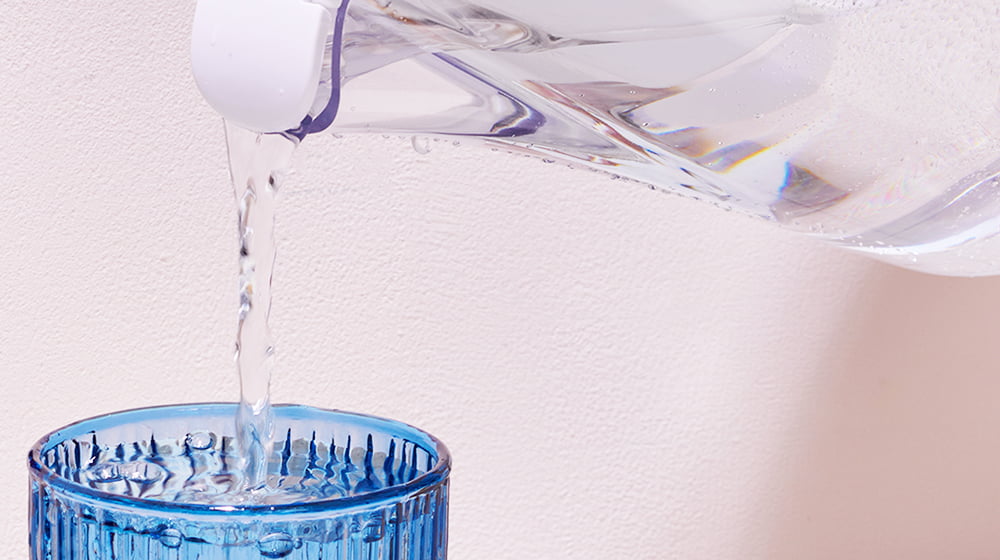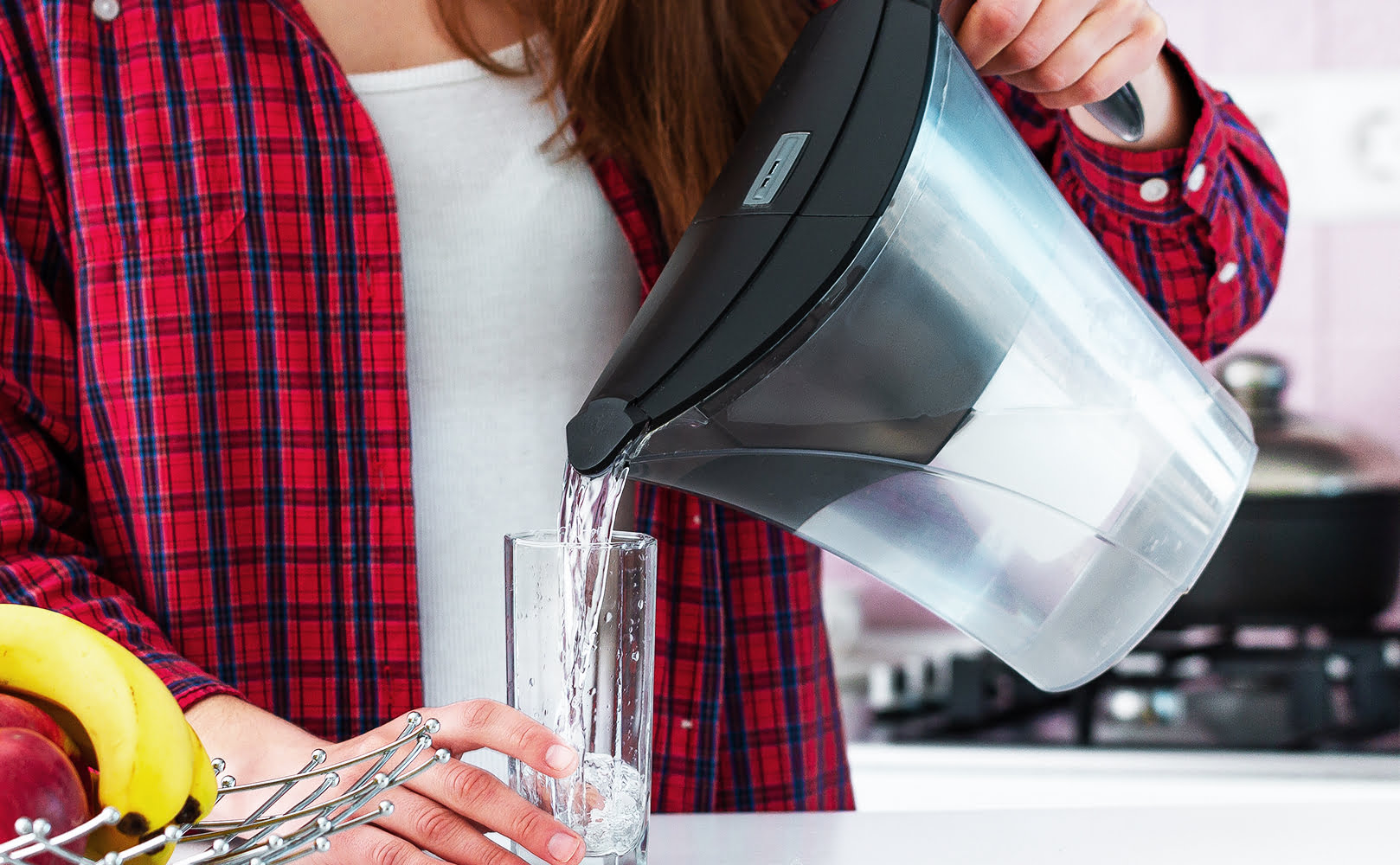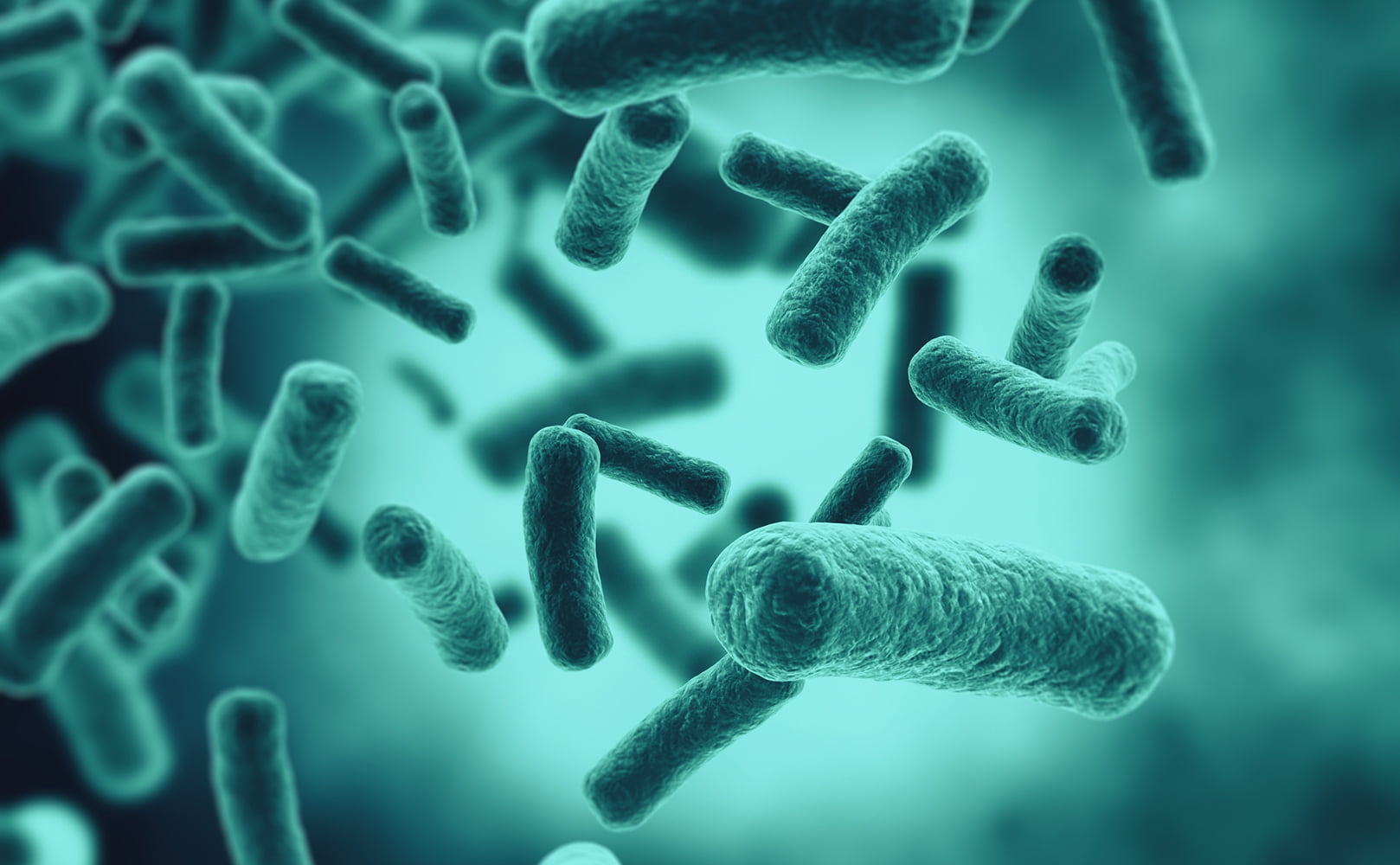8 Best Water Filter Pitchers (*Update 2024)
Written by: Alexandra Uta // Last Updated: Jan 31, 2024
This page may contain affiliate links. If you buy a product or service through such a link we earn a commission at no extra cost to you. Learn more.
Top Pick: What’s the Best Water Filter Pitcher?
The best water filter pitcher in 2024 is the Clearly Filtered, because it is NSF-tested to remove 360+ contaminants, easy to set up and use, affordable to maintain, backed by a 30-day satisfaction guarantee and lifetime warranty, and it has a long filter life of 100 gallons.
Are you tired of searching through endless options for water filter pitchers? Look no further! We’ve sifted through the masses to bring you only the best! Whether you’re in need of a highly effective pitcher removing even the most stubborn water contamination or just want something basic, we’ve got you covered.
To help you make the best buying decision, we’ve evaluated 51+ water filter pitchers on the market since this buying guide was first published. Long story short, we’ve done the hard work so you don’t have to.
Video Update: 11 Water Filter Pitchers Lab-Tested + Reviewed
Mike, our inhouse video content creator, has reviewed 11 of the most popular and most promising water filter pitchers. This included lab testing for contaminant reduction for all 11 pitchers! The recommendations we give in this video are the most up-to-date and reflect our current opinion.
Here is how we tested and rated the 11 filter pitchers:
- Filtration effectiveness based on real-life contaminant reduction rates achieved in our lab testing
- NSF certifications and NSF testing
- Filter media used
- Filtered water taste and odor
- Usability
- Upfront price and long-term cost for replacement filters
- Other factors
The Google Sheet mentioned in the video with our full analysis of each of the 11 pitchers including lab reports can be found here: https://docs.google.com/spreadsheets/d/10QbGH53ad3pIySQ8n1fMCq0BhNTXdixhbdDmzxEzsI0/edit
Product Links & Discount Codes
1. Best Overall: Clearly Filtered Water Pitcher
- Check Current Price – Get 10% Off! Use Code:
BOS10
2. Best for Usability/Looks in Combination with Low Price: Waterdrop Chubby
- Check Current Price – Get 21% Off! Use Code:
RCPT
3. Possibly the Best for Bacteria & Cyst: LifeStraw Home 10-Cup
4. Best for Nitrate: ZeroWater 10-Cup Ready-Pour
Other Pitchers Reviewed in This Video
- Brita Large (Everyday) Pitcher w/ Elite Filter: Check Current Price
- Aquagear: Check Current Price
- PUR PLUS 11-Cup: Check Current Price
- Epic Pure: Check Current Price – Get 20% Off! Use Code:
BOSEpic - ProOne: Check Current Price
- Kirkland Signature (Costco) Filtered Water Pitcher: Check Current Price
- up & up (Target) Water Filtration Pitcher Navy 7 Cup: Check Current Price
No Time to Read? Check Our List of the Best Water Filter Pitchers!
| Model | Details | |
|---|---|---|
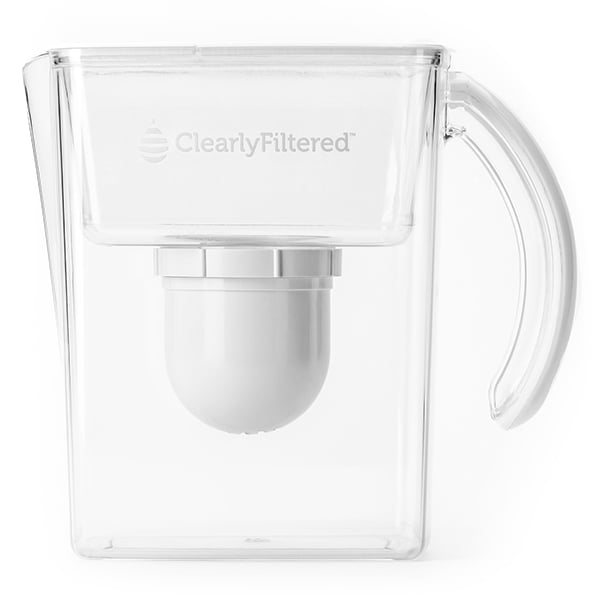 Best Overall with Most Contaminants Removed: Clearly Filtered |
Overall Rating: 5.0/5.0
Get 10% Off! Use Code: |
Price: $$$ Size (Cups): 10 Filter Life: 100 gal Annual Cost: ~$150 Warranty: Limited Lifetime Read Review: Click Alexa’s Video Review: Click |
 The Runner-Up for Tap Water: Epic Pure |
Overall Rating: 4.5/5.0
Get 20% Off! Use Code: |
Price: $$$ Size (Cups): 8.5 Filter Life: 150 gal Annual Cost: ~$90-135 Warranty: Lifetime Read Review: Click Alexa’s Video Review: Click |
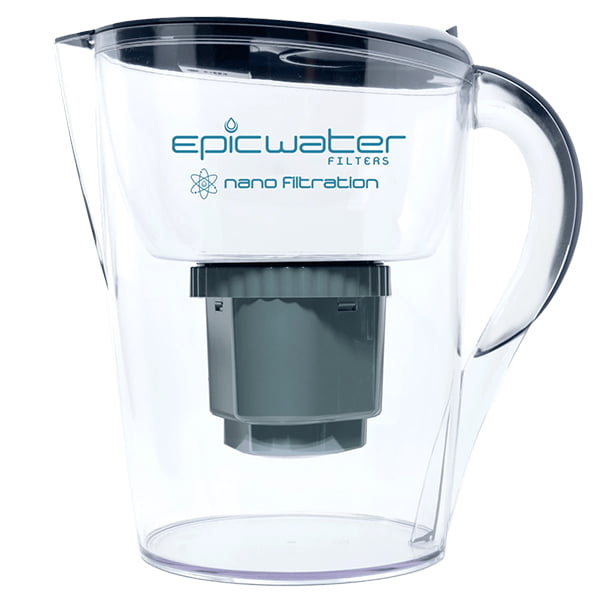 The Runner-Up for Well Water: Epic Nano |
Overall Rating: 4.5/5.0
Get 20% Off! Use Code: |
Price: $$$ Size (Cups): 8.5 Filter Life: 150 gal Annual Cost: ~$90-135 Warranty: Lifetime Read Review: Click Alexa’s Video Review: Click |
Water Filter Pitcher Reviews
Our Top Picks
- Clearly Filtered Pitcher – Best Overall
- Epic Water Filters Pitchers – Runner-Up
- Aquagear Pitcher – Best for PFOA/PFOS
- Seychelle Gen 2 Dual pH2O – Best for Alkaline Water
- ZeroWater Dispenser – Best for 0 TDS
- Brita Tahoe Pitcher + UltraMax Dispenser – Best Budget Option
- Santevia MINA
- PUR PLUS Pitcher – Best NSF-Certified
1. Best Overall: Clearly Filtered Pitcher (for Tap and Well Water + Removes the Most Contaminants)
In our opinion, the best water filter pitcher in 2024 is the Clearly Filtered. Why? Because it’s tested to remove more contaminants from both tap water and disinfected well water than any other pitcher currently on the market. What’s more, filtered water taste is pristine. Definitely 5 stars!
Want to check if the Clearly Filtered removes the contaminants detected in your public water supply? Click here!

Clearly Filtered Water Filter Pitcher |
|
| Price: | $$$ |
| Size: | 10-Cup |
| Filter Life: | 100 Gallons |
| Annually: | ~$150 |
| Warranty: | Lifetime (Limited) |
|
Overall Rating: 5.0/5.0
Get 10% Off! Use Code: |
|
Alexa’s Video Review
Alexa, our inhouse video content producer, has ordered and tested the Clearly Filtered Water Pitcher with her own hands. In other words, she has assembled and used the pitcher at home for several weeks to gain invaluable first-hand experience and insights. Alexa has documented the entire process and shares her opinion in the video below:
Other Specs
- Model: CF-PRF
- Last Price: $90
- Filter Media: Carbon + Composite Shell
- WxHxD: 11.25″x10.25″x5″
- Weight (Empty): 2.3 lb
- NSF Standard Testing: 42, 53, 401, P473
Key Features & Pros
- Built in USA!
- Clearly Filtered pitcher features Affinity Filtration Technology, a combination of granular activated carbon and different proprietary filter media to eliminate more than 365 potential contaminants from water like: Chlorine (99.5%) and chloramine (99.7%), lead (99.3%), chromium-6 (97.8%), arsenic (98.3%), many pharmaceuticals (most to 99.9%), dozens of pesticides and herbicides (up to 99.9%), various chemicals including BPA (99.9%), VOCs and semi-volatile compounds (most to 99.9%), PFAS (up to 99.5%), and fluoride (99.5%).
- Independent laboratory testing according to NSF/ANSI standards 42, 53, 401, and protocol P473 substantiate manufacturer claims.
- Effectiveness of filtration is guaranteed for highest drinking water quality and clean taste.
- Healthy minerals are retained in water.
- 10-cup pitcher can hold enough filtered water suited for family use.
- Removable lid makes refilling a lot easier.
- Pitcher is made from 100% BPA-free Tritan plastic.
- Quick assembly.
- One pitcher filter lasts a full 100 gallons or 4 months – more than twice as long as the average. Annual replacement cost: ~$150.
- Maintenance is kept at a bare minimum.
- You can get discounts if you subscribe or buy in bulk.
- 30-day money-back guarantee for peace of mind. Return and get refund if you’re unhappy.
- Limited lifetime warranty.
Cons
- Relatively expensive when compared to other models.
- Some reviewers complained about filters wearing out prematurely and long waiting times.
- We cannot attest. Never had issues like these.
Our Rating
- Filtration: 5.0/5.0
- Filter Life: 5.0/5.0
- Price: 4.0/5.0
- Maintenance Cost: 4.5/5.0
- Overall: 5.0/5.0
Best for
The Clearly Filtered pitcher is best for people who value clean and safe drinking water – with almost all contaminants removed – more than anything.
→ Detailed Clearly Filtered Review Here
2. Runner-Up: Epic Pure & Epic Nano Water Filter Pitchers
Our second favorite water filter pitcher in 2024 is the Epic Pure/Nano.
Yes, Epic Water Filters pitchers come in two versions:
- Epic Pure Water Filter Pitcher designed for city tap water filtration – focuses on removing fluoride and heavy metals. Choose between white and navy blue pitcher design.
- Epic Nano Water Filter Pitcher perfect for well water. Focus: Bacteria, viruses, and cysts. Design: Navy blue or black.
That said, the filters are interchangeable so that you can always switch versions later on if need be.
Apart from fluoride, heavy metals, and microorganisms, Epic filter pitchers target more than 200 different contaminants that might be lurking in your water which is why we consider them one of the best of their kind.

Epic Pure Water Filtration Pitcher |
|
| Price: | $$$ |
| Size: | 8.5 Cups |
| Filter Life: | 150 Gallons |
| Annually: | $90-135 |
| Warranty: | Life |
|
Overall Rating: 4.5/5.0
Get 20% Off! Use Code: |
|

Epic Nano Water Filtration Pitcher |
|
| Price: | $$$ |
| Size: | 8.5 Cups |
| Filter Life: | 150 Gallons |
| Annually: | $90-135 |
| Warranty: | Life |
|
Overall Rating: 4.5/5.0
Get 20% Off! Use Code: |
|
Alexa’s Video Review
Being part of the BOS team, Alexa has ordered and tested the Epic Pure/Nano Water Filter Pitcher with her own hands. This means she has assembled and primed the pitcher herself, and then used it for several weeks. Alexa shares her experience with the product in the below video:
Other Specs
- Model: Epic Pure, Epic Nano
- Last Price: $70
- Filter Media: Carbon Block, Ion Exchange Resin
- WxHxD: 10″x10″x6″
- Weight (Empty): 2.0 lb
- Water Temperature: 38-85 °F
- NSF Standard Testing: 42, 53, 401, P231, P473
Key Features & Pros
- Vast majority of people are highly satisfied, loving the taste of their filtered water.
- Tested and verified in multiple EPA accredited laboratories against NSF/ANSI standard 42, 53, 401, P473 to remove 200+ pollutants:
- Chlorine, fluoride, nitrate, chloramine, sulfate, arsenic, cadmium, hexavalent chromium, lead, mercury.
- A bunch of volatile organic compounds.
- Pharmaceuticals and so-called emerging contaminants.
- Haloacetic acids, trihalomethanes.
- Lots of pesticides.
- Semi volatiles.
- PFOA + PFOS.
- Microplastics.
- Radiological elements.
- Epic Pure pitcher is even more effective at removing fluoride and heavy metals.
- Epic Nano pitcher applies sub-micron filtration to additionally remove up to 99.999% bacteria (e coli, legionella pneumophila, hepatitis A, salmonella), viruses, cysts (giardia & cryptosporidium. According to NSF protocol P231.
- Nano filter is also more resistant to clogging caused by hard water.
- Filtration process is based on coconut shell carbon block + ion exchange resin.
- Calcium, magnesium, potassium and other minerals are left untouched adding to your daily recommended intake.
- Bottom reservoir holds roughly 8.5 cups of water which is less than usually but still okay.
- You can pour while there’s still unfiltered water left in the upper reservoir.
- Designed to fit into most refrigerators.
- Material is BPA-free Tritan plastic.
- Long-lasting filter cartridges: 150 gallon or 2-6 months depending on your water conditions and usage.
- Filters are Made in USA.
- Each filter is 100% recyclable.
- Recycling program: Collect four filters and send them back to receive one free replacement filter.
- Built in filter life countdown timer reminds you when to replace.
- Price seems fair. More affordable than Clearly Filtered and Aquagear. You can save an additional 20% when subscribing for replacement filters (Clean Water Club). No obligations. Cancel anytime.
- Epic has discounts for military personnel, first responders, medical staff, teachers, students, seniors, and owners and employees of non-profit organizations.
- Backed by lifetime warranty and hassle-free return policy.
Cons
- It usually takes between 5-10 minutes to filter one refill. However, some people complained about extremely slow filtration after a few weeks. More frequent replacements really add to the cost.
- The top may come off when pouring.
- Flip lid may get stuck.
Our Rating
- Filtration: 4.5/5.0
- Filter Life: 5.0/5.0
- Price: 4.0/5.0
- Maintenance Cost: 4.5/5.0
- Overall: 4.5/5.0
Best for
These two pitchers by Epic Water Filters are our second best choice for highly effective tap and well water filtration.
3. Best for PFOA + PFOS: Aquagear Water Filter Pitcher
Our next review features the Aquagear. Its makers said they were unsatisfied with the “mass market filters removing surprisingly few tap water contaminants”, so they decided to create their own product.
The Aquagear uses activated carbon combined with ion exchange resin tested to remove/reduce around 70 of the most common and most harmful tap water contaminants. 4.0 stars!
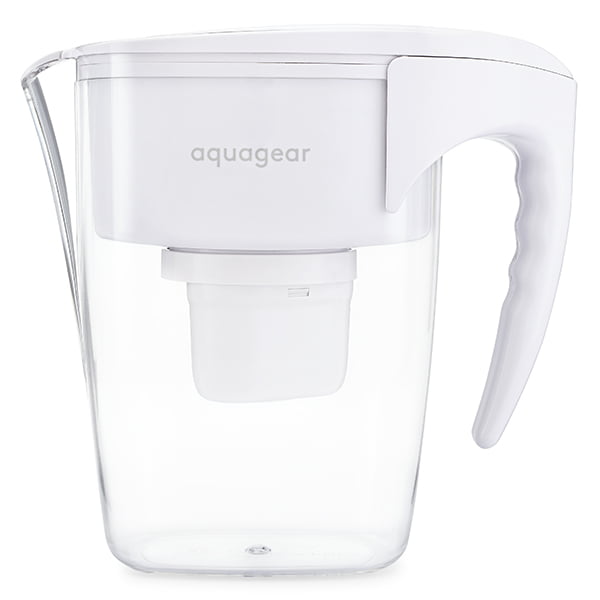
Aquagear Pitcher Filter |
|
| Price: | $$$ |
| Size: | 10 Cups |
| Filter Life: | 120 Gallons |
| Annually: | ~$150 |
| Warranty: | Life |
|
Overall Rating: 4.0/5.0
|
|
Gallery
Other Specs
- Model: Aquagear
- Last Price: $69.95
- Filter Media: Carbon + Ion Exchange
- WxHxD: 11″x11″x6″
- Weight (Empty): 2.34 lb
- NSF Standard Testing: 42, 53, 401, P473
Key Features & Pros
- Filter media made in USA!
- Produces great-tasting water.
- Aquagear filter pitcher has shown to remove lead (up to 99.41%) and a few other heavy metals, chlorine (99.96%), PFOA (99.9%), PFOS (99.9%), microplastics (99.99%), and several dozen volatile organic compounds (most to 99.97% removal) among other stuff.
- NSF/ANSI certification standards 42, 53, 401, and 473 are met.
- Calcium, magnesium, and other essential minerals are not removed from your drinking water.
- 10-cup water storage capacity.
- 120 gallons filtration capacity (5-6 months) per filter cartridge is solid. Annual cost: $150.
- Saves you from frequent replacements.
- Subscribe to get 20% off.
- Aquagear recycle program allows you to send back your used filters, which are 100 percent recyclable, for free.
- Whole pitcher is made from 100% FDA food-grade, BPA & BPS-free materials.
- Lifetime guarantee: Aquagear replaces broken pitcher free of charge.
Cons
- Thorough filtration takes longer – and a lot longer in some cases. That’s something you have to accept when you opt for the Aquagear water filtration pitcher. It’s probably best to fill it right before you go to bed. This way you can enjoy some refreshing water first thing in the morning.
- Not the most affordable pitcher to maintain.
Our Rating
- Filtration: 4.0/5.0
- Filter Life: 5.0/5.0
- Price: 4.0/5.0
- Maintenance Cost: 4.5/5.0
- Overall: 4.0/5.0
Best for
The Aquagear is ideal for almost complete removal of perfluorinated chemicals.
→ To Our Detailed Aquagear Water Filter Pitcher Review
4. Best for Alkaline Water: Seychelle Gen 2 Dual pH2O Filter Pitcher
With the Gen 2 Dual pH2O alkaline water filter pitcher sold by Seychelle, the pH value of your water will increase to up to 9.5. But not only that, the pitcher is NSF-tested to remove many potentially harmful water contaminants.
So while at this time there seems to be no solid scientific evidence supporting the claim that alkaline water is better for our health than regular drinking water and we leave it up to you to decide about its health benefits, there is one thing for certain: The Seychelle Gen 2 Dual pH2O is very effective making it our #1 alkaline water filter pitcher in 2024.

Seychelle Gen 2 Dual pH2O |
|
| Price: | $$$ |
| Size: | 8 Cups |
| Filter Life: | 150 Gallons |
| Annually: | ~$120-180 |
| Warranty: | 90 Days |
|
Overall Rating: 4.5/5.0
|
|
Other Specs
- Model: Gen 2 Dual pH2O
- Filter Media/Process: Activated Carbon, Ion Exchange, Mineralization
- WxHxD: 10.5”x10.75”x5.5”
- Weight: 2.01 lb.
- NSF Testing: Standard 42, 53
Key Features & Pros
- To be used with city water.
- Filters contain mineral stones which add healthy minerals to water for higher pH and alkalinity.
- Filter cartridges also use activated carbon and ion-exchange resin to reduce harmful chlorine, VOCs, THMs, forever chemicals, nitrate/nitrites, heavy metals including lead and chromium, fluoride, and more.
- Also improves taste and smell of drinking water.
- Filtration process is NSF-tested against standards 42 and 53 for guaranteed performance.
- Easy to assemble and use.
- BPA-free plastic.
- One pair of filters lasts a long 150 gallons.
Cons
- Few users complained about their water pH increasing only slightly or not at all.
- Sometimes, filter cartridges can be bit tricky to install.
- Issues with clogging filters. More frequent replacements add to the already high cost.
- You can’t pour if there’s still water in the top reservoir.
- Short 90-day warranty.
- We would have preferred a few official NSF certifications.
Our Rating
- Filtration: 4.5/5.0
- Filter Life: 5.0/5.0
- Price: 4.0/5.0
- Maintenance Cost: 4.5/5.0
- Overall: 4.5/5.0
Best for
The Seychelle Gen 2 Dual pH2O Water Pitcher is best if you are into alkaline drinking water.
5. Best for 0 TDS: ZeroWater 23-Cup Water Filter Dispenser
In our opinion, a solid water filter dispenser in 2024 is the ZeroWater 23-Cup – although we don’t consider total dissolved solids (TDS) an ideal measure to determine drinking water quality.
Why the ZeroWater 23-Cup? Because its five-stage filtration process is NSF/ANSI certified against Standard 42 for reduction of chlorine taste and smell (97.5%), and against Standard 53 for the reduction of lead (95.9-99.7%), hexavalent chromium (99.6%), mercury (96.0-96.7%), and PFOA/PFOS (94.9%).
Furthermore, test results show that ZeroWater filters are capable of removing most arsenic 3 and 5, copper, manganese, fluoride, nitrate/nitrite, and several other contaminants in water.
All in all, we would describe the performance as quite strong, and thus 4 stars.
A Word on Total Dissolved Solids (TDS)
Even if a TDS meter reads “0”, it doesn’t mean your water is 100% safe. It only means that it’s free from most dissolved solids, primarily minerals like calcium, salts like sodium and nitrates, and organic compounds (e.g. sulfides). In addition, TDS isn’t associated with health effects. Rather, it is a good indicator of aesthetic drinking water characteristics: Taste, odor, color, turbidity, etc.

ZeroWater Filter Dispenser |
|
| Price: | $$ |
| Size: | 23 Cups |
| Filter Life: | 20 Gallons |
| Annually: | ~$190-225 |
| Warranty: | 90 Days |
|
Overall Rating: 4.0/5.0
|
|
Other Specs
- Model: ZD-018
- Filter Media: Carbon + KDF + Ion Exchange + Membrane
- WxHxD: 14.96″x10.63″x5.51″
- Weight (Empty): 4 lb
- NSF Certifications: 42, 53
Key Features & Pros
- 5 filter stages produce delicious water:
- First, a filter screen rejects sediment and fine particles.
- Next comes a carbon filter layer + oxidation alloy to remove organics, certain heavy metals, and chlorine. The oxidation alloy (KDF) also prevents germs from accumulating inside the filter cartridge.
- At stage 3, a foam distributor disperses water evenly across the filter width for longevity and improved filtration.
- Ion exchange resin.
- Another filter screen + membrane layer trap ultra-fine particles.
- Dispenser holds 23 cups which is plenty of water for family use.
- Other ZeroWater dispensers (and pitchers) use same filter cartridge and come in various sizes.
- Water quality meter for measuring total dissolved solids is part of the package.
- No need to memorize the date of the last replacement. Simply check the purified water from time to time. Whenever the meter reads “006” or more it’s time to install a new filter.
- You can easily dispense water from spigot while the reservoir continues to filter – no long waiting times.
Cons
- Filtration can be slow.
- Issues with filters lasting no more than 10 gallons. At such low capacity, operating cost start to add up quickly.
- No more than 90 days warranty on dispenser.
Our Rating
- Filtration: 4.0/5.0
- Filter Life: 2.0/5.0
- Price: 5.0/5.0
- Maintenance Cost: 3.5/5.0
- Overall: 4.0/5.0
Best for
The ZeroWater filter dispenser is best for people who want their drinking water to be free from TDS.
6. Best Budget Picks: Brita Tahoe Pitcher and UltraMax Dispenser
Brita offers a whole arsenal of water filter pitchers and dispensers. One of the manufacturer’s newest and most popular pitcher models is the Brita Tahoe – a basic unit that’s simple to use and widely available. As for water filter dispensers, the Brita UltraMax is the way to go.
That being said, which specific pitcher/dispenser model you choose isn’t that important really; they’re almost all compatible with the same Brita filters (Standard and Elite), which is why you can expect identical results in water quality.
Can they compete with the cream of the crop? Not really. Combined with an Elite filter, Brita filter pitchers and dispensers are a quick fix for somewhat safer and tasty drinking water at a price that’s hard to beat. Affordability paired with functionality is also probably the reason why there’s so much positive customer feedback on Amazon. Still, in our opinion, there’re better choices out there (see above). But for mild levels of water contamination, this might be just what you’re looking for.

Brita Tahoe Water Filter Pitcher |
|
| Price: | $$ |
| Size: | 10-Cup |
| Filter Capacity: | 120 Gallons |
| Annually: | ~$55-60 |
| Warranty: | 90 Days |
|
Overall Rating: 4.0/5.0
|
|
Other Specs
- Model: Tahoe (OB60)
- Filter Media/Process: Pleated Structure, Activated Carbon
- WxHxD: 10.22″x10.39″x5.68″
- Weight: 1.5 lb.
- Water Temperature: 32-85 °F
- NSF Certifications: 42, 53, 401
Key Features & Pros
- One word: Affordable.
- BPA-free materials only.
- Choose between:
- Brita Standard filter – Rated at 40 gallons and removes bits of mercury, cadmium, copper, zinc, and most importantly chlorine taste and smell.
- Brita Elite filter – 120-gallon filtration capacity. Can handle a wider range of contaminants including lead (99.5-6%), benzene (93.5%), and asbestos (99%). NSF certifications also testify at least 97.4% chlorine removal for a huge improvement in water taste.
- We recommend Brita Elite! Almost same price tag when you take into account filter capacity.
Brita Tahoe Pitcher Features
- 10-cup capacity is ideal for families.
- Compact, functional design won’t take up much space in your fridge.
- The flip-top lid allows for easy filling.
- SmartLight filter life indicator reminds you of filter replacements.
Brita UltraMax Dispenser Features
- Holds up to 18 cups of filtered water, or exactly 1.13 gallons. You probably won’t have to refill it more than two times per day, depending on the size of your family, which makes it ideal for any larger home.
- Thanks to the sleek design, the dispenser can sit on your kitchen countertop without taking up too much space. Alternatively, you can keep it on a shelf in your fridge if you prefer to enjoy cold drinking water.
- Spigot for easy water dispensing (even for kids).
- Filter life indicator included.
Cons
- The types of contaminants that can be removed is limited.
- Short 90-day warranty.
- Some users had issues with premature filter clogging.
- Plastic has cracked for some users.
Our Rating
- Filtration: 4.0/5.0
- Filter Life: 5.0/5.0
- Price: 5.0/5.0
- Maintenance Cost: 5.0/5.0
- Overall: 4.0/5.0
Best for
The Brita Tahoe filter pitcher and the Ultramax dispenser are ideal for people on a really tight budget.
→ Read Our Detailed Brita Ultramax Dispenser Review
7. Santevia MINA Alkaline Water Filter Pitcher
Let’s find out if the Santevia MINA is any good!

Santevia MINA |
|
| Price: | $$ |
| Size: | 9 Cups |
| Filter Capacity: | 80 Gallons |
| Annually: | ~$120 |
| Warranty: | 90 Days |
|
Overall Rating: 4.0/5.0
|
|
Other Specs
- Model: MINA 2
- Filter Media/Process: Activated Carbon, Ion Exchange, Mineralization
- WxHxD: 5”x10”x8.5”
- NSF Testing: Standard 42, 53, 401
Key Features & Pros
- Made in Canada!
- Pick from 2 colors: White or black.
- The Santevia MINA uses 3 filter stages:
- Granular activated carbon targets chlorine, VOCs, and other organic chemicals and even some heavy metals. This also improves how your water tastes and smells.
- Ion exchange resin is used to remove salts (including some fluoride), metals, and more.
- A mineralization stage adds trace minerals like calcium, magnesium, and potassium to the water balancing the pH level.
- Filter process is tested against NSF standards 42, 53, and 401 (99.9% chlorine, 99% lead, 98.2% cadmium and chloramine, 98% chromium 6, 99.9% PFAS/PFOS, and more).
- Santevia says the MINA pitcher can raise water pH by up to 2 points.
- Holds 9 cups of water which is pretty standard.
- Convenient pour-through lid.
- BPA-free Tritan plastic.
- Easy to assemble and maintain.
- 30-day money-back guarantee.
Cons
- No official NSF certifications, only testing.
- Filter cartridges last for about two months or 80 gallons of water which is okay. However, you can expect to spend around $120 on new filters annually, which is a bit expensive compared to other models on the market with similar filtration capabilities.
- Issues with filters falling out.
- Not everyone saw an increase in water pH.
- Short 90 days warranty.
Our Rating
- Filtration: 4.0/5.0
- Filter Life: 4.5/5.0
- Price: 4.0/5.0
- Maintenance Cost: 4.5/5.0
- Overall: 4.0/5.0
Best for
The Santevia MINA Alkaline Water Filter Pitcher is best for people who look for a system that combines effective water filtration with mineralization and who can afford the higher long-term maintenance cost.
8. Best NSF-Certified: PUR PLUS Filter Water Pitcher
In our opinion, any PUR water filter pitcher is suited for providing drinking water, if combined with the PUR PLUS pitcher filter cartridge.
The setup tackles several of the most common contaminants found in our water supplies these days – but not necessarily the most harmful.
Unfortunately, people have reported issues like filters clogging ahead of time. Then again, the price is hard to beat and most people are more than happy with their purchase. Bottom line: 3.5 stars.

PUR PLUS 11-Cup Pitcher |
|
| Price: | $$ |
| Size: | 11-Cup |
| Filter Capacity: | 40 Gallons |
| Annually: | ~$65-75 |
| Warranty: | 90 Days |
|
Overall Rating: 3.5/5.0
|
|
Other Specs
- Model: PPT110W, PPT110B, PPT110M
- Filter Media: Activated Carbon + Ion Exchange
- WxHxD: 11.4″x10.4″x4.9″
- Weight (Empty): 2.68 lb
- NSF Certifications: 42, 53, 401
Key Features & Pros
- Affordable!
- Most people like how the water tastes.
- Only use PUR PLUS filter cartridges for most effective contaminant reduction.
- Based on activated carbon and ion exchange resin.
- Removes chlorine (97.5%), cadmium (98.9-99.3%), mercury (96.4%), and several industrial pollutants and pharmaceuticals among other things.
- Pitcher and filter is NSF-certified against standards 42, 53, and 401 for added credibility.
- 11 cups storage volume is enough for families.
- BPA-free.
- Filters are rated at 40 gallons which is okay thanks to replacements being affordable.
- Filter life indicator reminds you when it’s time to replace.
Cons
- Main issue is filters tend to clog ahead of time which can be annoying and adds to the cost.
- Lid may fall off when pouring.
- Short 90-day warranty.
- Contaminant reduction rates don’t cover lead, chromium-6, PFAS, and other harmful and common contaminants.
- Influx of knockoff cartridges on the market, requiring extra caution when shopping.
Our Rating
- Filtration: 3.5/5.0
- Filter Life: 3.5/5.0
- Price: 5.0/5.0
- Maintenance Cost: 4.5/5.0
- Overall: 3.5/5.0
Best for
The PUR PLUS water filter pitcher is best for people who want contaminant removal certified against various NSF standards.
→ Read Our Full Review of the PUR PLUS 11-Cup Water Pitcher Here
Comparison List
(Mobile Hint: Swipe to Scroll)
| Model | Price | Cups | Filter Media | Filter Life | NSF/ANSI | WxHxD | Weight | Annual Cost | Warranty | Additional Info |
|---|---|---|---|---|---|---|---|---|---|---|
| Clearly Filtered 10-Cup Water Pitcher | $$$ | 10 | Carbon + Composite Shell | 100 gal | 42, 53, 401, P473 | 11.25″x10.25″x5″ | 2.3 lb | ~$150 | Lifetime (Limited) | |
| Epic Pure & Epic Nano Pitcher Filters | $$$ | 8.5 | Carbon Block, Ion Exchange Resin | 150 gal | 42, 53, 401, P231, P473 | 10″x10″x6″ | 2.0 lb | $90-135 | Life | |
| AquaGear Water Pitcher | $$$ | 10 | Carbon + Ion Exchange | 120 gal | 42, 53, 401, P473 | 11″x11″x6″ | 2.34 lb | ~$150 | Life | |
| Seychelle Gen 2 Dual pH2O Water Pitcher | $$$ | 8 | Carbon + Ion Exchange + Minerals | 150 gal | 42, 53 | 10.5”x10.75”x5.5” | 2.01 lb | ~$120-180 | 90 Days | |
| ZeroWater Filter Dispenser | $$ | 23 | Carbon + KDF + Ion Exchange + Sediment Membrane | 20 gal | 42, 53 | 14.96″x10.63″x5.51″ | 4 lb | ~$190-225 | 90 Days | |
| Brita Tahoe Pitcher (with Elite Filter) | $$ | 10 | Pleated Carbon | 120 gal | 42, 53, 401 | 10.22″x10.39″x5.68″ | 1.5 lb | ~$55-60 | 90 Days | |
| Santevia MINA Water Pitcher | $$ | 9 | GAC + Ion Exchange + Ceramic Balls + Mineral Blend | 80 gal | 42, 53, 401 | 5”x10”x8.5” | ? | ~$120 | 90 Days | |
| PUR PLUS 11-Cup Pitcher | $$ | 11 | Activated Carbon + Ion Exchange | 40 gal | 42, 53, 401 | 11.4″x10.4″x4.9″ | 2.68 lb | ~$65-75 | 90 Days |
Buying Guide: How to Choose the Home Water Filter Pitcher That’s Best for You
The following are key features worth considering when shopping for a water filter pitcher for your home. They will help you choose the right on for your needs and budget.
Contaminant Reduction
Most water filter pitchers use some sort of activated charcoal/carbon to trap impurities, mainly chlorine, with the goal to improve water taste and odor. So, if all you want is enjoy a refreshing glass of drinking water and you’re not really concerned about removing certain contaminants for health reasons, a basic filter pitcher makes a great choice.
Some brands like Clearly Filtered, however, will take care of at least some of the nasty things that might be lurking in your water supply, such as lead, chromium 6, and VOCs. So the question really is: What is it that you want to accomplish?
You should also think about having your water tested before making a purchase.
NSF/ANSI Testing & Certifications
Pay special attention to tests and certifications for NSF/ANSI standards 42 and 53. Standard 42 measures the reduction of chlorine taste and smell from water. Standard 53 is for contaminants with health effects. These include heavy metals, organics, and all kinds of chemicals.
In addition, NSF/ANSI Standard 401 – which is fairly new – addresses the removal of prescription drugs, over-the-counter medications, herbicides, pesticides, and other chemical compounds that can also affect our health. Not many water filter systems have been tested against this standard yet.
NSF/ANSI 244 is “the American National Standard that sets benchmark criteria for drinking water filters designed to protect against intermittent incursions or accidental microbiological contamination of public or private drinking water”.
Lastly, NSF/ANSI protocol P473. It outlines performance requirements for drinking water treatment units removing PFOA and PFOS.
On a side note: NSF/ANSI certifications do not guarantee that a particular water filter will remove a certain contaminant entirely, but to a significant extent.
Water Storage Volume (Jug Size)
For pitchers, water storage volume is measured in cups. You will find models with volumes between 8 and 11 cups on this page.
Obviously, a lower volume requires more frequent refills. This is why a pitcher might not be an ideal filter for a large home and people with very high water demand. Keep in mind that after each refill you’ll have to wait for the water to run through the filter.
Water filter dispensers are often the better alternative here. The two dispensers we reviewed above have a capacity of 23 and 18 cups of water (1.44 and 1.13 gallons respectively). Both should last for a whole day in a 2-person home. A family of 4 probably needs one additional refill.
Also, bear in mind that while dispensers come with a spout, pitchers have to be lifted for pouring. And a full 10-cup pitcher is quite heavy. This is not a deal breaker. You might find it inconvenient, though.
Filtration Speed
Just like under sink water filters, all water filter pitchers are not created equal. Some are faster and some slower. And while fast filtration seems preferable to quench your thirst, remember that thorough filtration takes time.
Water Filtering Capacity
For us, a pitcher’s initial price tag is secondary. What matters are running cost determined by the price and lifespan of replacement filters:
- A cartridge’s lifespan depends on its water filtering capacity. This determines how often you need to replace it.
- Capacities range from 10 or 20 gallons of filtered water (lasts about one or two months) to 200 gallons (enough for up to six months).
So when you estimate costs, filtering capacity is definitely something you should take into account. For example: An expensive filter may provide 150 gallons of clean, safe water, whereas a cheap one dies at the 40-gallon mark.
By the way, we are not really into filter life indicators. Why? Because they’re inaccurate and usually measure time instead of water usage. We recommend you simply write down the date of the last filter replacement and estimate your daily water consumption.
BPA-Free Materials
You want to make sure that all materials are 100% BPA-free, especially the container. Bisphenol A is commonly found in plastics and can leach into water over time. While at this point the U.S. Environmental Protection Agency says that BPA doesn’t require regulation, other sources have linked the substance to cancer and assume that it can affect the development of fetuses and newborns. So remember: Only BPA-free materials like Tritan plastic or glass.
Manufacturer Warranty & Cost
Personally, we prefer water filter products that are covered for lifetime and that come with a trial period a.k.a. money-back satisfaction guarantee.
And as far as costs are concerned, apart from a pitcher’s initial purchase price you also want to check replacement filter cost which can really add up if you have to change filters frequently.
More on Water Filter Pitchers
What Are Water Filter Pitchers?
Water filter pitchers are simple devices to improve the taste and quality of drinking water. Based on gravity, cold water trickles from the feed water container through one or more filter elements into a clean water reservoir ready for consumption.
Depending on the exact process, filtering a full pitcher can take anywhere between three and 30 minutes.
How Do Filter Pitchers Work?
How do water filter pitchers work? Most make use of carbon filtration as their primary filter medium. That means the filter cartridges contain catalytic or activated carbon in granular or block form to adsorb impurities, trapping them in the surface pores.
More sophisticated pitchers also apply ion exchange which is great for the removal of heavy metals and fluoride for example.
You may also find pitcher filters that use KDF for controlling microorganisms.
What Contaminants Are in Our Water and Can Filtered Water Pitchers Remove Them?
What contaminants a filtered water pitcher removes depends on the water treatment process it applies.
Budget models provide basic filtration to merely improve water aesthetics. Some might even reduce harmful contaminants such as lead.
If you can spend a little more, you could buy the Clearly Filtered which is among the best water filter pitchers in our opinion. It’s independently tested to 5 different NSF certification standards (42, 53, 244, 401 & 473) for the removal of 360 contaminants give or take:
- Cl
- Chloramine
- Fluoride
- Perfluorinated chemicals (PFOA, PFOS)
- Microplastics
- Various metals, e.g. arsenic, lead, chromium 6
- About two dozen pharmaceuticals
- Herbicides
- Pesticides
- 100+ VOCs/semi-volatiles
- Radiological elements
Benefits – 5 Reasons Why to Use a Filter Water Pitcher
Here are our 5 reasons on why you should use a water filter pitcher in your home:
1. Health Benefits: Removal of Harmful Contaminants
Check the above list and you’ll find that the top rated water filter pitchers are very well capable of filtering a wide of range of potentially harmful contaminants from water. There’s no easier way to protect your family!
2. Improved Water Aesthetics
A reduction in contaminants usually also means improved water aesthetics – think taste, smell, color, etc.
3. Ease of Use
A pitcher is so easy to use. And it doesn’t even require installation. You simply put the filter cartridge in place, fill the top container at your kitchen faucet, and wait. Maintenance is child’s play, too!
4. Portability
No permanent installation means portability: You can store the filter pitcher in your fridge for cooling, take it with you when you move, any maybe even use it in the field.
5. Low Price
To top it off, filter pitchers are one of the most affordable type of water filter system. Only faucet filters can compete in terms of required budget.
Who Should You Be Using a Water Filter Pitcher?
Do you even need a water filter pitcher?
In our opinion, anyone with water quality issues should consider buying one. And if you’re living in a really large household, just buy two!
Drinking water contamination is just too big of an issue – with potentially adverse health effects – to ignore it.
How can you find out if your water contains harmful contaminants? Through testing: You can do basic testing yourself using one of the widely available test kits. Or you can hire an independent laboratory to do it for you.
Alternatively, check your latest water quality report in case you’re receiving tap water.
When to Change a Water Pitcher Filter
There’s no such thing as a standard filter rating. How long a filter lasts in real life varies depending on how many contaminants are present in your water. This especially applies to water with high mineral content that often leads to clogging.
Also, some filters such as the Aquagear are rated much higher than others, e.g. at 120 gallons.
Factors that indicate an imminent filter replacement are a change in water taste and slowing filtration.
Chart: When to Replace Filters
| Filters | Rating | Time Maximum |
|---|---|---|
| Clearly Filtered | 100 gal | 4 mos |
| Epic Pure + Epic Nano | 150 gal | 6 mos |
| Aquagear | 120 gal | 5-6 mos |
| Invigorated Living PH001 | 96 gal | 4 mos |
| Invigorated Living PH002 | 264 gal | 12 mos |
| ZeroWater Filter | 20 gal | 1 mos |
| Brita Filter – Standard | 40 gal | 2 mos |
| Brita Filter – Elite | 120 gal | 5-6 mos |
| Santevia Classic | 80 gal | 2 mos |
| Santevia MINA | 80 gal | 2 mos |
| PUR PLUS | 40 gal | 2 mos |
| Nakii | 150 gal | 4 mos |
| Seychelle | 150 gal | Up to 6 mos |
How to Change the Filter Cartridge
Changing a pitcher water filter isn’t complicated at all.
- Usually, the first step is to take out the top reservoir so that you get access to the filter.
- Remove the old filter. Most elements screw on, some are simply pushed in place.
- Prime the new filter. The package might include a flushing disk or something similar. Some filters simply need to soak for a couple of minutes or hours.
- Insert the filter by pushing or screwing.
- Install the feed water reservoir.
- Depending on the manufacturer instructions, you might have to discard the first one or two pitchers of water before it’s ready for drinking.
Brita vs PUR vs Clearly Filtered vs Aquagear vs ZeroWater – Our Take on Pitcher Brands
Brita and PUR offer their products at an affordable price tag which is why both brands are highly popular. The pitcher filters allow for basic contaminant removal. Brita’s Elite replacement filter can even be used to tackle lead. Bottom line: Good if you’re on a budget.
Clearly Filtered is a premium brand. Their pitcher is by far the best performance-wise. If you’re concerned about certain contaminants in your home’s water supply this is the ideal filter pitcher to buy.
Other top brands to consider are Aquagear and Epic Water Filters.
If you’re looking for an alkaline filter pitcher, make sure check out the Seychelle.
ZeroWater’s pitcher filters focus on reducing Total Dissolved Solids. However, in our opinion TDS is not the best measure to determine water quality. And while the filters are great for chlorine reduction etc., they don’t come without flaws – think clogging.
Frequently Asked Questions (FAQ)
- Which water filter pitcher removes the most contaminants?
That’s an easy one for sure! The Clearly Filtered water filter pitcher removes the most contaminants by far – more than 365 in total. - Is filtering water better than drinking bottled water?
It depends. Many bottled waters, including some of the fancy brands, are just regular tap water filled into plastic containers. In this case, yes, filtered tap water is probably the better option in terms of quality. Plus, there’s a clear cost advantage. Spring water or artesian water is usually really good quality-wise, but might be even more expensive. - Do alkaline water pitchers work?
Yes, they do. Alkaline filter pitchers produce water with a higher pH by adding minerals. The question remains, however, whether or not alkalinized water does have any health benefits. - Do water filter pitchers remove bacteria?
A few of them do, like the Clearly Filtered pitcher. - Which water filter pitcher removes lead?
Lead is one of the easier contaminants to remove, even for a water pitcher. All Brita pitchers that use an Elite filter cartridge work. Aquagear and Clearly Filtered are perfectly fine, too.
Questions? Ask away!
Information provided on BOS is for educational purposes only. The products and services we review may not be right for your individual circumstances.
We adhere to strict editorial guidelines. Rest assured, the opinions expressed have not been provided, reviewed, or otherwise endorsed by our partners – they are unbiased, independent, and the author’s alone. We fact-check all content for accuracy. It is accurate as of the date posted and to the best of our knowledge.

